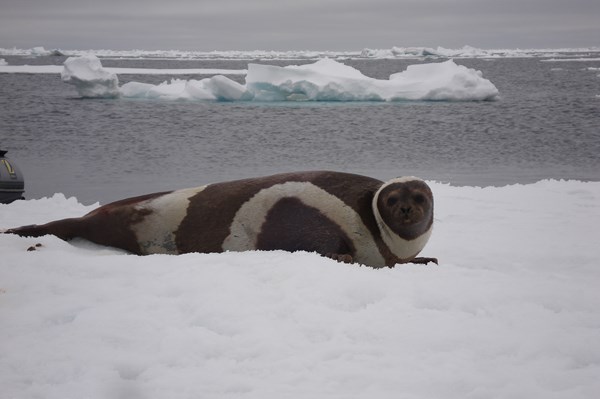DENVER, Dec. 28, 2015 (GLOBE NEWSWIRE) -- Most dog owners are familiar with canine distemper, a highly contagious and serious disease that affects the respiratory, gastrointestinal, and nervous systems of puppies and dogs. What many people may not know is that there is a related virus, phocine distemper, that can be deadly to seals and that poses a significant threat to marine mammal species around the world, and potentially to the highly endangered Hawaiian monk seal.
Phocine distemper virus was first recognized in 1988 following a massive epidemic affecting harbor and grey seals in northwestern Europe. Multiple outbreaks followed, with tens of thousands of harbor seals dying as epidemics swept through populations that had no immunity to a virus that is suspected to have its roots in terrestrial hosts.
Researchers at the University of California, Davis, funded by Morris Animal Foundation, first confirmed that phocine distemper virus had crossed from the Atlantic Ocean through the Arctic Ocean into sea otters in Pacific waters. In a second study, also funded by foundation, the researchers evaluated the extent of seal and sea lion species with the infection, the timeline of its emergence, and the role that PDV may play in the health of marine mammal populations off the coast of Alaska.
"Through our work, we were able to document that the virus is present and circulating in most Arctic and subarctic seals, sea lions and sea otters," said Dr. Tracey Goldstein, associate professor at the University of California, Davis. "Results also indicated that the virus moved into the Pacific from the Atlantic sometime after 2002 following an outbreak in Europe that killed 30,000 harbor seals."
In the second foundation-funded study, the UCD-based team was able to develop a new sensitive test for detecting phocine distemper; testing that will help track the spread of PDV along the Pacific West coast. They also showed that PDV is present in otters from other regions in Alaska, and circulating in ice seals, Northern fur seals, and Steller sea lions. Study findings were provided to the U.S. Marine Mammal Commission which has a working group on emerging health threats to marine mammals in the Pacific.
As a result of the team's research, new surveillance and monitoring programs are in place for PDV infection in monk seals, and management plans have been developed in the event that any PDV-positive animals are detected.
"New diagnostic tests and results from this study are providing important health data for monitoring PDV infections in marine mammals," said Dr. Jonna Mazet, professor at the University of California, Davis, and director of the school's One Health Institute. "Thanks to funding from Morris Animal Foundation, we have a better understanding of how the virus is moving through marine populations. That understanding is helping government and private conservation groups develop monitoring and management plans to help protect not only endangered species, such as the monk seal, but all at-risk marine mammals."
About Morris Animal Foundation
Morris Animal Foundation is a global leader in funding science that advances the health and well-being of companion animals, horses and wildlife. Since our founding in 1948, we have invested more than $100 million toward 2,400 studies that have led to significant breakthroughs in veterinary diagnostics, treatments, preventions and cures to benefit animals worldwide.
A photo accompanying this release is available at:
